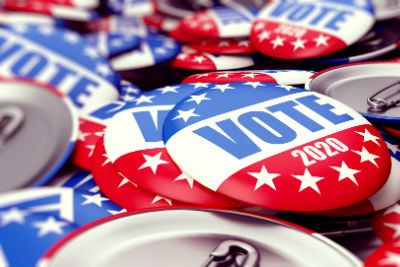
In the United States, a common issue that gets brought up repeatedly in major elections is voter identification laws. The controversy surrounding the topic has only gotten worse in recent years.
In most recent times, both the 2016 and 2020 U.S. presidential elections have been claimed to have widespread voter fraud and illegal interference. Many cite the lack of strict and heavily enforced voter identification laws as a leading cause.
Many have called for reforms with plenty of arguments in support and against them. Here are several reasons why voting identification laws still remain controversial.
Voting fraud
One of the biggest points of controversy for voter identification laws is voter fraud. How states define voter fraud varies, but essentially, voting fraud is the manipulation of an election’s results to increase the number of votes to a specific candidate or policy.
Common examples of committing voting fraud could include voting twice, voting on behalf of an ineligible voter, or voting under a false identity. The punishment for committing voter fraud varies, but you could be charged with committing a felony or misdemeanor and receive a fine.
While voting fraud does happen, the amount in which it can affect the outcome of an election, especially in major presidential elections, has been a heated topic of discussion. Some proponents say that by having strict voter identification laws, voter fraud is deterred. Another claim is voter fraud could potentially affect the outcome of close elections.
Since many voting identification laws are designed to affect people who vote in person, it would take a tremendous, if not organized, group of people to commit widespread voter fraud. Is it possible? Yes, but it doesn’t seem likely. Generally, most people don’t commit voter fraud in person since the penalties and risk are not worth it. This makes the claim of widespread voter fraud questionable.
Voter suppression
It’s often argued that voter identification laws target minorities. It’s been cited that minorities are less likely to have the proper identification needed to vote in person. Supporters of voter identification laws say that minorities aren’t deterred from voting because of these laws. If someone has a strong desire to vote, they will acquire the necessary documents to vote regardless of race.
Another argument is minorities typically don’t vote in high numbers, and identification laws aren’t correlated.
On the opposite side, opponents say that even if minorities wanted to get proper identification, they had a harder time obtaining said identification.
Another argument is that voter identification laws are more enforced for minorities to the point it could be considered harassment. In turn, this can deter minorities from voting.
Amount of burden
Having a valid form of identification is expected for many things like starting a new job, boarding an airplane, or buying alcohol. Supporters of voter identification laws argue that showing a form of identification is similar. Personal identification is something you need to use on an everyday basis. Therefore, showing it when you vote in person should be routine and wouldn’t cause any unnecessary burden.
On the opposite side, opponents claim that millions of Americans don’t have government-issued photo ids. Additionally, the price of acquiring them causes an unnecessary amount of financial burden and time. This becomes a greater problem if you don’t have an ID office near you.
The counterargument is people should have a photo ID since they typically need it for important things like getting a new job or going to the hospital. While true, there are ways to circumvent some of these requirements.
Sometimes if you know your social security number or show your card, you can demonstrate to an employer or a hospital you are who you say you are. This doesn’t quite work with voting, though. It could potentially be a risk if you openly shared your social security since many people who operate polling booths are volunteers and don’t have to follow strict codes of conduct like regular employees.
There isn’t an exact right or wrong answer people can agree upon when it comes to voter identification laws, nor is there much middle ground. It’s a system that continues to draw anger from people on both sides of the argument.
It remains murky how voter identification laws will be developed. New voting identification laws have been introduced but have been met with much resistance. It remains to be seen how these new laws will affect future big elections like the 2022 midterms and 2024 presidential elections.
Story by Trevor McDonald. He is a freelance content writer who has a passion for writing. He’s written a variety of education, travel, health, and lifestyle articles for many different companies. In his free time, you can find him running with his dog, playing his guitar or outside enjoying about any type of fitness activity imaginable.










